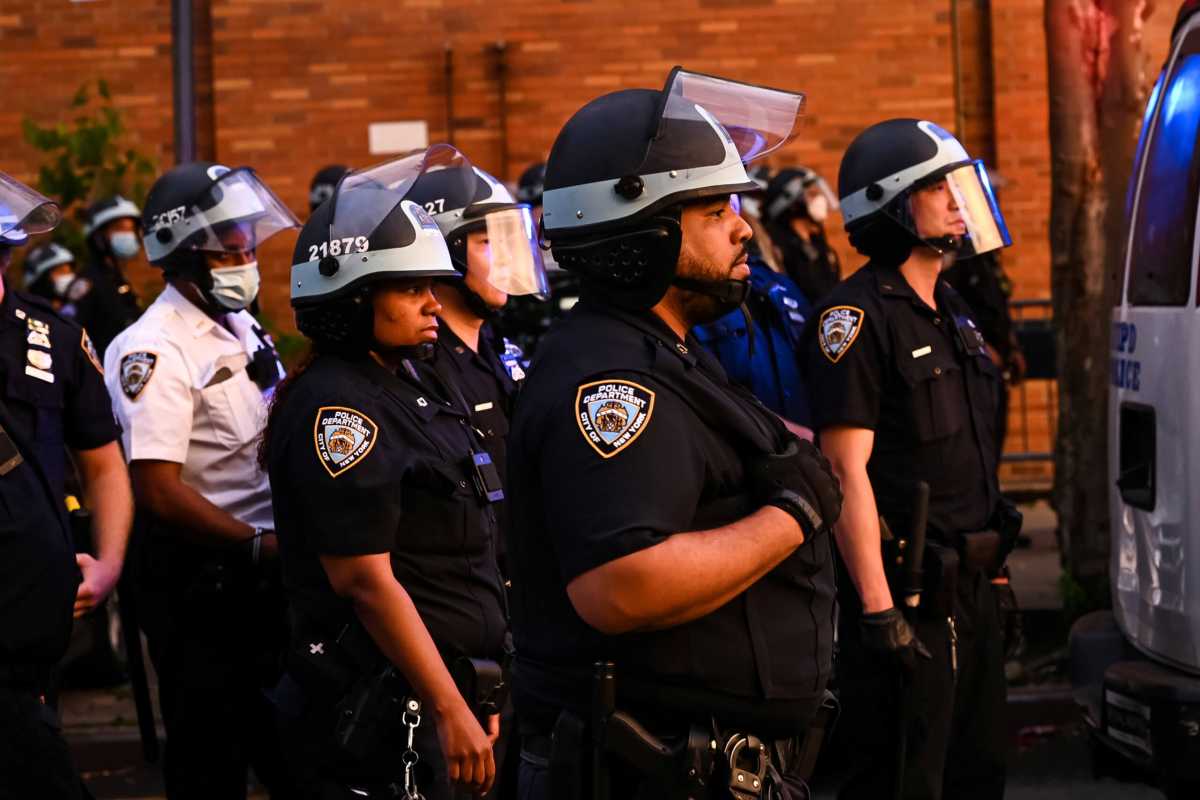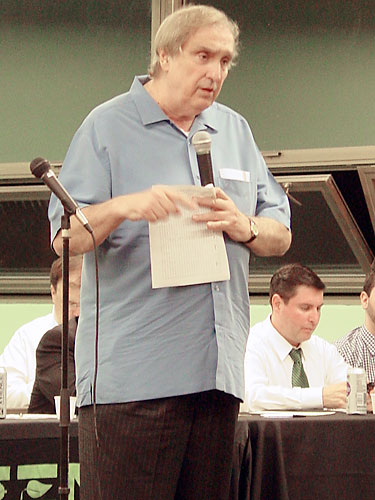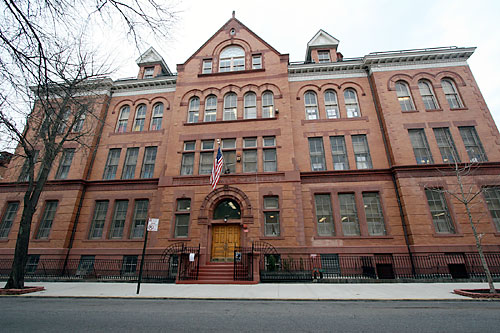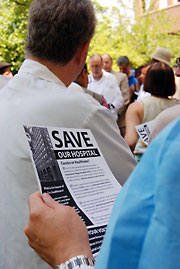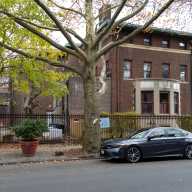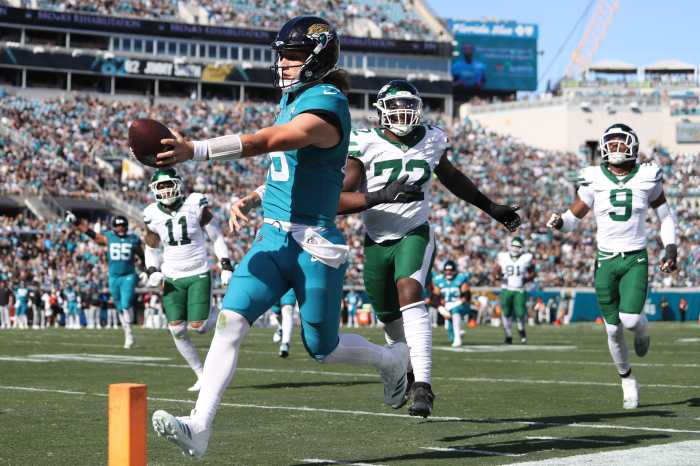During an hours-long virtual meeting Tuesday night, the City Council voted in favor of this year’s city budget, approving an almost $1 billion reduction in money allocated for the New York Police Department — a complex and controversial move that drew ire from both supporters of police and anti-law enforcement groups.
“Now for some, it wasn’t enough, for some they wanted to push further, and we’re going to continue to work to get there,” said Crown Heights Councilwoman Laurie Cumbo. “But Speaker Corey Johnson, as you see, had a tremendous task of hearing and listening to the diversity of opinions of all the Council Members.”
Minutes before midnight on June 30, nine of Brooklyn’s city legislators voted to pass the budget, and six cast a vote against it — compared to a citywide vote tally of 32 in favor and 17 opposed.
Cumbo, the legislative body’s second highest ranking member, acknowledged the struggle of crafting a citywide budget at a time when New York faces a staggering $9 billion shortfall due to the COVID-19 pandemic, and demonstrators continue to march against police brutality throughout the five boroughs demanding significant reforms to the NYPD.
“This Council had the tremendously difficult task of addressing the totality of racism that is embedded in every single aspect of our city’s agencies, during a time when we had to fill an almost $9 billion budget gap,” she said.
While Mayor Bill de Blasio claimed that the budget met protesters’ demands to reduce the police department’s budget by $1 billion, detractors were quick to argue that cuts only amounted to $430 million — while another $537 million was directed to other agencies to perform the same duties previously assigned the the NYPD, such as money for the Department of Education to pay school safety officers.
“A cop whose salary is paid by the DOE is still a cop policing young people in our schools,” said Bushwick state Sen. Julia Salazar on Twitter on June 29. “These cost shifts do not address New Yorkers’ demands to make meaningful cuts of at least $1 Billion from the NYPD’s operating budget.”
A cop whose salary is paid by the DOE is still a cop policing young people in our schools.
These cost shifts do not address New Yorkers’ demands to make meaningful cuts of at least $1 Billion from the NYPD’s operating budget. pic.twitter.com/7HvqJEjiMU
— Julia Salazar (@JuliaCarmel__) June 29, 2020
The budget does, however, temporarily lower the NYPD headcount by 1,163 officers by canceling two out of four cadet classes this year. Currently, there are about 36,000 uniformed officers in the Department.
As members of the Council debated the proposed budget long into the night, hundreds of protestors filled the park outside City Hall to demand more stringent cuts to law enforcement.
The budget does include funds that will go to bringing back initiatives which Mayor Bill de Blasio had threatened to slash entirely, like the Summer Youth Employment Program, which will now get $115 million.
Brownsville Councilwoman Alicka Ampry-Samuel said that she voted in favor of the proposed budget to save some of these programs, which are essential to her constituents that have been ravaged by the coronavirus outbreak.
“The pandemic has underscored our vulnerabilities and weaknesses and put us in a position to either drive down a hill, or off a cliff,” Ampry-Samuel said. “So today I’m choosing to drive down the hill instead by returning peaceful school safety to their rightful place in the DOE, funding SYEP, prioritizing youth and communities, and funding the organizations that kept us alive during the height of the pandemic.”
Several Brooklyn legislators voted against the budget after echoing concerns that the proposed cuts to law enforcement did no go far enough — including Inez Barron of East New York, who, in 2015 was the lone vote against a budget that significantly expanded police. On Tuesday, she said that the only meaningful change will come from larger cuts to the NYPD’s headcount.
“We need a reduction in the ranks of those who are killing Black and brown people,” Barron said. “We need a hiring freeze, no new academy classes, and a reduction in uniformed officers headcount.”
Some opposition also came from conservative lawmakers, such as Sheepshead Bay Councilman Chaim Deutsch, who said he could not vote for any cuts to police budgets at all, especially amid a recent uptick in gun violence.
“I cannot support a budget that includes defunding the NYPD by $1 billion. It is neither productive for the safety of New Yorkers, nor a true reform that benefits the minority communities,” said Deutsch. “My constituents are afraid, New Yorkers are afraid, mothers are hesitant to send their children out, this is not a time to start making cuts and proposing deeper restrictions on the NYPD.”
Brooklynites in parts of Bushwick, Cypress Hills, Brownsville, Ocean Hill, and East New York did not have any representation over the proposal, as the Council’s District 37 will remain empty until early next year because former Councilman Rafael Espinal abruptly left office last January to take up an executive position at the non-profit Freelancers Union.
The budget takes effect on Wednesday, July 1, the start of the city’s new fiscal year.
Here’s a full list of votes by Brooklyn Council members:
Yes
- Alicka Ampry-Samuel (Brownsville)
- Justin Brannan (Bay Ridge)
- Robert Cornegy (Bedford-Stuyvesant)
- Mathieu Eugene (Prospect Lefferts Gardens)
- Stephen Levin (Brooklyn Heights)
- Farah Louis (Flatbush)
- Alan Maisel (Marine Park)
- Mark Treyger (Coney Island)
- Laurie Cumbo (Clinton Hill)
No
- Inez Barron (East New York)
- Chaim Deutsch (Sheepshead Bay)
- Brad Lander (Park Slope)
- Carlos Menchaca (Sunset Park)
- Antonio Reynoso (Bushwick)
- Kalman Yeger (Borough Park)


